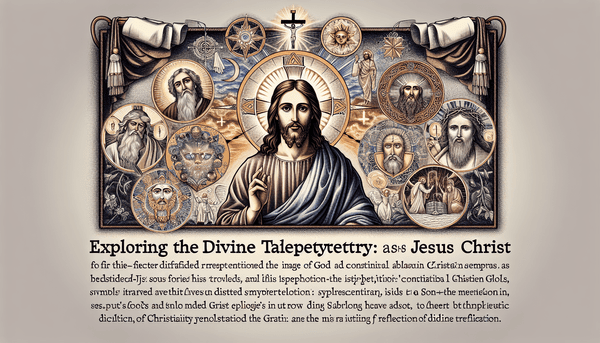The Jewish Heritage of Jesus, Mary, and Joseph
The Jewish roots of Jesus, Mary, and Joseph are not mere background details but are integral to the story of redemption. Jesus's lineage traces back to King David, fulfilling the prophecy that the Messiah would come from David's line (Matthew 1:1). Mary and Joseph, too, were devout Jews whose lives and actions were in accordance with Jewish customs and laws. Their lineage from the tribe of Judah aligns with the Messianic prophecies that the Savior would emerge from this tribe (Hebrews 7:14). Jesus's Jewish identity was pivotal to His earthly ministry, and He was recognized as the 'Root and Offspring of David' (Revelation 22:16). By underscoring His Jewish heritage, the Gospels connect Jesus's story with the broader narrative of God's chosen people and their long-awaited Messiah.
The Many Names of Jesus
Throughout the Christian scriptures, Jesus is known by various names, each reflecting a facet of His character and mission. 'Jesus' itself is derived from the Hebrew name 'Yeshua,' meaning 'JHWH is salvation,' which speaks to His role as the savior of humanity (Acts 4:12). He is also called 'Christ,' the Greek equivalent of 'Messiah,' designating Him as the anointed one sent by God (Matthew 16:16). As 'Son of God,' Jesus is recognized as having a unique relationship with the Father, embodying divine nature and authority (John 4:42). These titles, including 'Redeemer' and 'Messiah,' are not just honorary but are central to the Christian faith, encapsulating the hope that Jesus brings to the world. Philippians 2:9-11 describes how God exalted Jesus and gave Him a name above all names, confirming His supremacy and lordship over all creation.
FAQ
Q: What does the name 'Emmanuel' mean?
A: Emmanuel means 'God with us' and signifies the divine nature of Jesus and his presence among humanity.
Q: Were Mary and Joseph Jews?
A: Yes, Mary and Joseph were both Jews from the lineage of the tribe of Judah and were faithful followers of the Jewish faith.
Q: What other names is Jesus known by?
A: Jesus is also known as Christ, Son of God, Redeemer, and Messiah.
Q: What is the significance of Jesus's statement on the cross, 'Woman, here is your son'?
A: This statement reflects Jesus's care for His mother, Mary, and establishes a new spiritual family among His followers.






